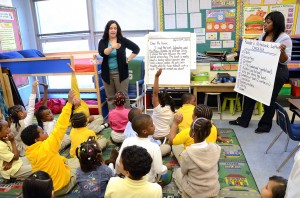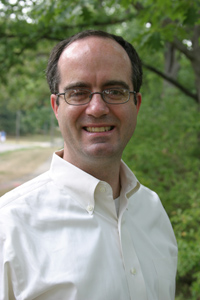EAST LANSING, Mich. — Why do so many beginning teachers quit the profession or change schools? Surprising new research finds it’s not a heavy workload or lack of resources that has the most significant effect, but instead the relationship between teachers and their principal.
Peter Youngs, associate professor of educational policy at Michigan State University and lead investigator on the study, said the findings reinforce the need for principals to serve as strong, supportive leaders in their schools.
“The principal isn’t there just to help the novice teacher handle discipline and classroom management,” Youngs said. “What really makes a strong administrative climate is when the principal also knows the academic content well and can work with the beginning teacher on curriculum and instruction.”
Youngs and Ben Pogodzinski of Wayne State University surveyed 184 beginning teachers of grades 1-8 in 11 large school districts in Michigan and Indiana. Their study, published in Elementary School Journal, was prompted by the fact that nearly a third of teachers in their first two years either change schools or quit altogether. This can be particularly harmful to low-income urban schools that have trouble recruiting and retaining teachers, Youngs said.
The study gauged novice teachers’ intent to remain teaching and the factors that might influence that decision. Youngs said he was surprised to learn the frequency with which novices met with their school-assigned mentor teachers did not make them more or less likely to continue teaching.
In fact, the most important factor that influenced commitment was the beginning teacher’s perception of how well the school principal worked with the teaching staff as a whole. This was a stronger predictor of intent to remain teaching than having adequate resources, the amount of administrative duties the teacher had or the size of their workload.
Youngs said the findings point to a potential need for more training for principals in university or professional-development programs.
“The focus,” he said, “would be on how principals could increase their knowledge of setting a healthy, productive school climate and understanding ways that their actions and leadership can impact new teachers’ attitudes and outcomes.”

Ashley Keine, a 2009 graduate of MSU’s College of Education, is a new teacher at Chicago’s Shoesmith Elementary School. Photo by Anthony Cepak
*Source: Michigan State University

